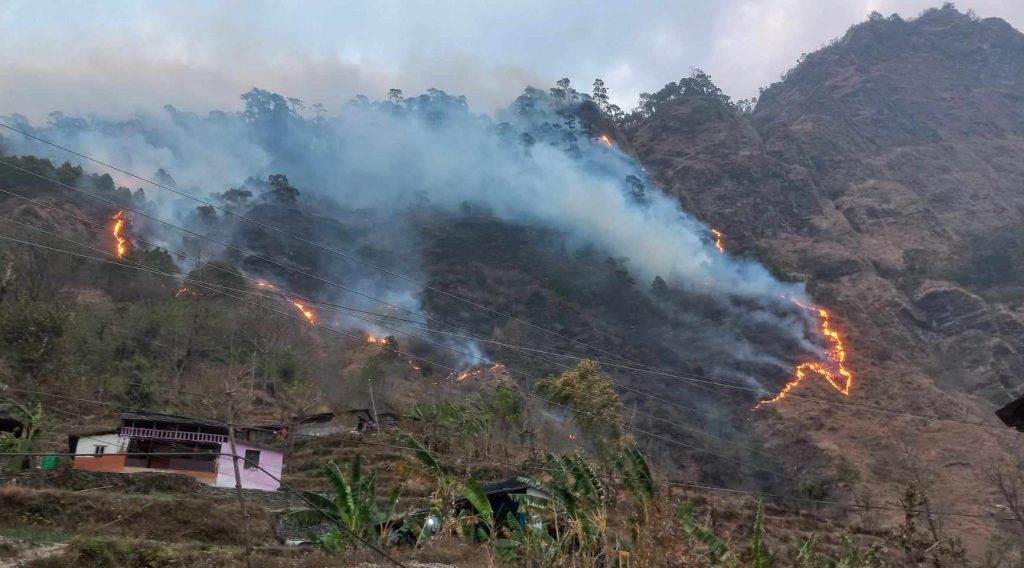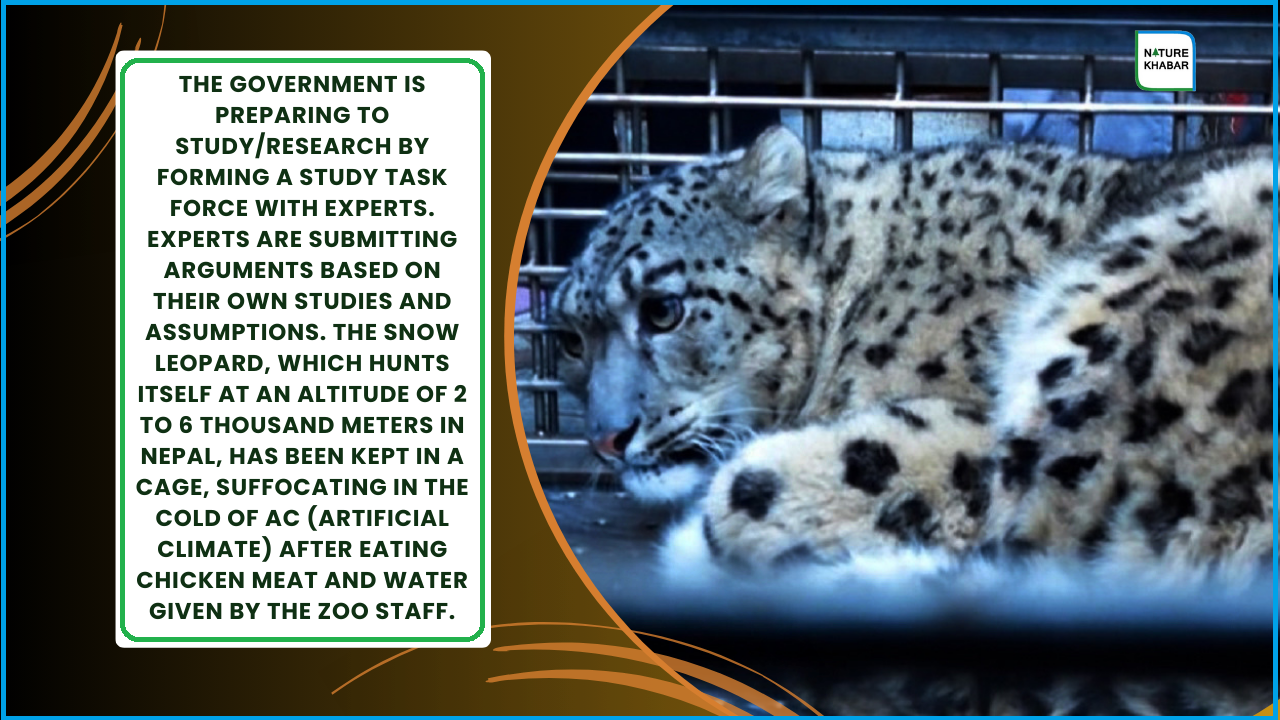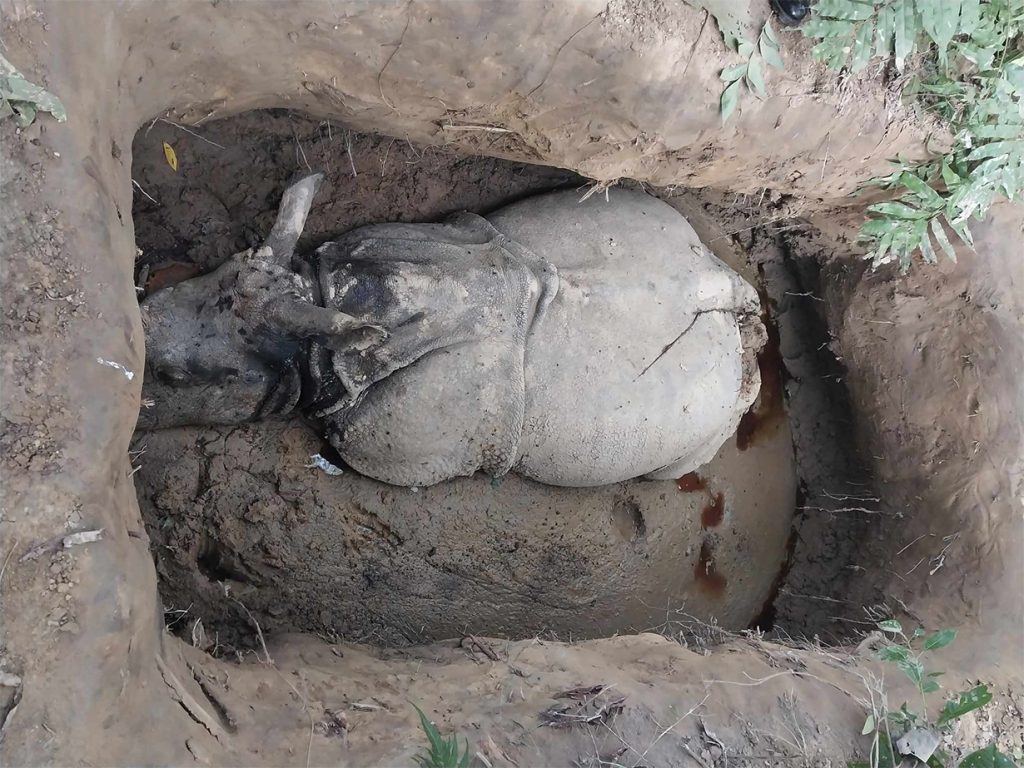Green economy to push country’s status to developed
- Nature Khabar

Nature Nepal representative Sujata karki talked about Green Economy with Ghan Shyam Pandey . He is an advocate on the issues of community forest. He has spent more than two decades of his life in sector of Green. He is the chairperson of Green Foundation Nepal. He is also adviser for the FECOFUN, AFFON and different organizations working in the sector of Green . Below is the extract of the conversation:

How can we understand Green Economy?
Economy can be seen in different levels. Development of industries change the way of economy. The development of economy has yielded to good results and the worst ones mostly on the environment, social and cultural relationships. In this context, the problems associated with climate change and conservation of bio-diversity can be given a momentum by prioritizing green economy. The environment friendly economy, sustainable management and utilization of natural resources, parallel and unbiased development of local communities and indigenous people can all be described as Green Economy .
What potential do you see in Nepal for the green economy?
This has the highest potential for the development in Nepal. Industrialization has remained a far cry for our country. Majority of the population depends on agriculture to earn for their living. The abundant resources of soil, forest, mines, river, and alike has remained unused which can now be tapped to create greater economic horizons and extend our job market. The concept of green economy can be extended and the foundation can be laid out in every villages and corners which would ultimately be the game changer for Nepal. Not surprisingly, Nepal can then stride onto the path of sustainable development.
Why hasn’t the Green Economy foster much in Nepal?
Lack of clear policies that would promote the green economy is the major hurdle that I see currently in Nepal. For the government and the policy makers, the backbone of economy has always been the big industries; at least they consider it to be so. The problems associated with the people’s attitude towards green economy are another crucial challenge which is further fueled by the lack of investment. The inadequacy of the most up-to-date technology to enhance the modern practices is another area of problem where our country needs to go a long way further.
What do you expect from the side of the government to address these problems?
The revenue generated from foreign employment and the tax collected from the import of goods and commodities have mostly been the major backbone of Nepalese economy. The government shouldn’t lose any further time to recognize that these sectors alone couldn’t keep our economy vibrant. Therefore, the government should acknowledge the role of youth in the mobilization of our rich natural heritage and bring policies to encourage them to be mobilized inside the nation for the optimum utilization of the available resources.
Provided that the good policies are introduced and implemented in NepalWhere have you seen Nepal 10 years down the road if the entire favorable environment is created?
If the positive environment is created, then our economy will undoubtedly grow and expand to an unprecedented level. We can easily graduate to a developed country from the current status of least developed country in very short span.
What have you got to offer about the link between Donor agency and Green Economy?
Something very positive that I would like to share with everyone is that the last year's global conference held at New Yorkthat saw several of the international companies pledging their support towards green and the subsequent conservation efforts through their commitments not to buy the raw materials from the places and countries with rampant deforestation. Global partnership and international investment are very instrumental towards protection and sustainable consumption of the natural resources. Same hold true for the protection of the vegetation and the tribes of people depending upon the natural resources. Against all these backdrops, we can rightly find Nepal in the priority list of many of the bilateral and multilateral donor agencies.
Will you shed little light on the backtracking of Donor agencies in Nepal’s forest program?
This is a very unfortunate event for both Nepal and the donor organization. I’d just like to emphasize that there shouldn’t be discrepancy between the prior commitments and the present actions. The Commitments of World forest conference, Paris UNFCCC conference, UN SDG meeting and other commitments that were made in an international forum to increase investment on least developed countries by different Donar organizations are not fulfilled in their letters and spirit. Our government should try to convince the organizations who have back tracked to come into agreement providing them the solid grounds to believe in its action plans and their effective implementation.
How is the situation of green sectorin Nepal?
Positive actions can be seen in Nepal in favor of the conservation and promotion of water, soil, forest, agriculture and ecotourism. Due to weak and lopsided rules and regulation, the forest areas of Nepal have been suffering from major devastation for past several decades.
What do you say about Green economy and climate change?
The sustainable green economy is the best solution to the global problem of climate change. It is the gray economy or the machine driven economy that is making the world a horrible place to live in.
How can we develop the concept of Agro-forestry?
Forestry and agriculture are the two interlinked domains. People should seek the scientific methods to carry out the agriculture in certain patches of forests where trees can hardly be grown. On the other hand, they should also consider planting trees and suitable vegetation in certain portion of agriculture land where farming doesn’t seem practical. This interlinking of agriculture and forestry can generate more raw materials and of course the better employment facilities.
In Nepal, what are the five things needed for the development of the green sector?
1. Nepal should move ahead as per the united nation’s goals of sustainable development goals. It has to make national action plan following the charter of the same SDGs and work accordingly.
2. The main components of the Nepalese economyare organic farming, forest, water and tourism. These sectors should be in priority.
3. Government should focus on the capacity development for the people who depend heavily on Natural resources.
4. Government should promote environment friendly infrastructure.
5. National production should be promoted based on sustainable forest management and commercial agriculture development.





Feedback